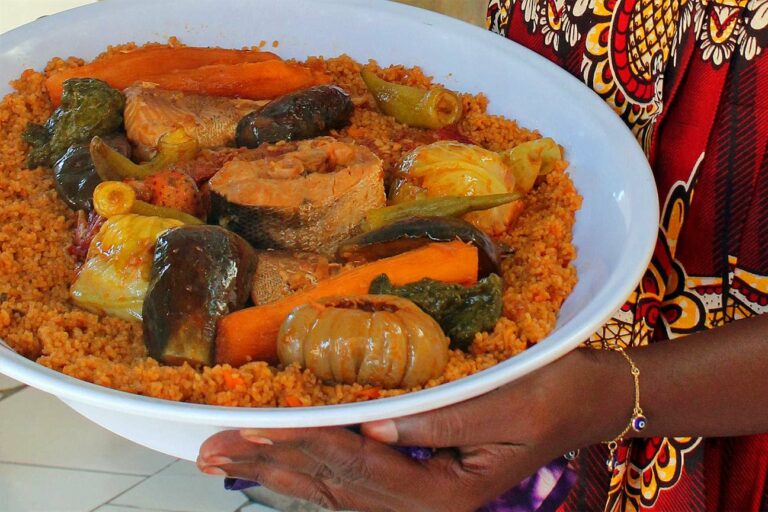Introduction: Gambian Breakfast Cuisine
Gambian cuisine is characterized by the use of simple ingredients and bold flavors. While lunch and dinner tend to be the main meals of the day, breakfast has a special place in Gambian culture. A traditional Gambian breakfast typically consists of a hearty dish made with grains and/or legumes, often accompanied by tea or coffee.
The Role of Breakfast in Gambian Culture
In Gambian culture, breakfast is seen as an important meal that provides energy and sustenance for the day ahead. It is also a time for socializing and connecting with family and friends. In many households, breakfast is a communal affair, where everyone gathers around the table to share a meal and catch up on the latest news.
Common Ingredients in Gambian Breakfast Dishes
Grains and legumes are the main ingredients in many Gambian breakfast dishes. Millet, sorghum, and rice are common grains, while black-eyed peas, beans, and lentils are popular legumes. Other common ingredients include onions, tomatoes, peppers, and spices such as ginger, garlic, and chili.
Traditional Gambian Breakfast Dishes: Examples
One of the most popular Gambian breakfast dishes is benachin, also known as “one pot.” It is a hearty stew made with rice, vegetables, and meat or fish. Other traditional dishes include domoda, a peanut butter stew served with rice, and tapalapa bread, a crusty bread made with wheat flour and millet.
Variations of Gambian Breakfast Dishes
While traditional Gambian breakfast dishes remain popular, there are also many variations on these classic recipes. For example, some people add eggs or cheese to their benachin, while others use different types of meat or seafood. There are also many regional variations of Gambian breakfast dishes, with each area of the country putting its own spin on the traditional recipes.
Modernization of Gambian Breakfast Cuisine: Challenges and Opportunities
As Gambian cuisine becomes more globalized, there are both challenges and opportunities for the traditional breakfast dishes. On the one hand, there is a risk of losing the unique flavors and ingredients that make Gambian cuisine so special. On the other hand, there is an opportunity to experiment with new recipes and techniques, and to share the flavors and culture of Gambian breakfast cuisine with the world. As long as Gambian cooks continue to honor the traditions of their cuisine while embracing innovation, there is no doubt that Gambian breakfast dishes will continue to be a beloved part of the country’s cultural heritage.

